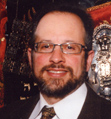 Soon, (May 14th eve – May 16th) we will be celebrating the holiday of Shavuoth. In a sense, Shavuoth is observed with less fervor than the other pilgrimage festivals. It suffers from being a bit too close to the summer and seven short weeks after Pesach, which is a hard act to follow. But it is a deeply important spiritual moment in the Jewish calendar. It is the anniversary marking when the Israelites first stood at Sinai and understood themselves as vehicles for God's will, as carriers of His message of joy, and having profound responsibility to the world at large. That was a deeply joyful and profound moment, and one that our tradition claims was experienced by every Jewish soul, past, present and future. Therefore, it is our responsibility to taste of it and reflect upon it yearly, as Shavuoth comes around.
Soon, (May 14th eve – May 16th) we will be celebrating the holiday of Shavuoth. In a sense, Shavuoth is observed with less fervor than the other pilgrimage festivals. It suffers from being a bit too close to the summer and seven short weeks after Pesach, which is a hard act to follow. But it is a deeply important spiritual moment in the Jewish calendar. It is the anniversary marking when the Israelites first stood at Sinai and understood themselves as vehicles for God's will, as carriers of His message of joy, and having profound responsibility to the world at large. That was a deeply joyful and profound moment, and one that our tradition claims was experienced by every Jewish soul, past, present and future. Therefore, it is our responsibility to taste of it and reflect upon it yearly, as Shavuoth comes around.
Shavuoth has three names–“Holiday of Weeks,” “Holiday of the Giving of the Torah,” and “Holiday of Boundaries”–Atzeret. One can easily understand why Shavuoth is called the “Holiday of Weeks,” for it falls exactly seven weeks after we begin counting the omer toward it, taking a daily spiritual reckoning each day, beginning from the second night of Passover. It is also understandable why Shavuoth is called the “Holiday of the Giving of the Torah,” as Shavuoth marks the anniversary when God orally encountered the people at Sinai, accompanied by a message of ten commandments, the commandments on which the entire Torah is based. But why is it called the “Holiday of Boundaries?”
Some say it has this name because the Pharisaic sages denied the Saducees, who said that one should begin counting from the Sabbath after Pesach not the day after, and to place the boundary at 50 days after the second night of Pesach. Others say that it means that this day is the final destination of the counting (its outer boundary) and the counting is not the main mitzvah but rather, the mitzvah is the journey toward the final 50th day/seven week destination. That is why, when we first begin counting, we don't say the Shehehiyanu prayer. We only say Shehehiyanu, the prayer of having reached this important moment, as we arrive at our destination.
Finally, Levi Ischak reminds us that we must make ourselves vessels for the message of Torah. He believes God’s message to Moses, as he ascended, was that the people should build a boundary, which they should not go beyond. Each of us is a vessel, and we must bend our wills and limit our freedoms so as not to spin off into radical freedom, in which we would continually unburdening ourselves of what is expected of us and our responsibilities. These are the boundaries we give ourselves in order to be containers of the Torah message, for our Torah is a treasure precisely because it tell us how to live both positively and through prohibitions. These guidelines provide not a full script, but a footpath and guideposts, boundaries, for our lifestyle and ethical decision-making. Because we are willing to accept some boundaries, we can become the vessels of God's intent. Without that willingness, our freedom can often spin out of orbit and lead us to become self-absorbed, directionless, and often, devoid of meaning. With regard to the Jewish people, remember, God liberated us from Egypt to become his people, and in return, allow Him to become our God. We rededicate ourselves to Judaism’s values and statutes, and imagine our souls standing at Sinai too, willing and eager to be bounded and channeled in our life's quest for meaning.
Our tradition teaches that when we immerse ourselves in Torah, even two people alone, and more so in greater numbers, can bring down the Shechina, God’s indwelling presence. Along these lines, join us for our Tikun Leil Shavuoth Study. We will explore our entire Torah text, with an interactive discussion of key passages in portions that begin and end each of the five books of Moses. In this way, we immerse ourselves in Torah study, and in so doing, bring down God’s manifest presence, even as it dwelled with Moses and the people of the first Shavuoth. Excitement and enthusiasm will fill the air, for our mystical tradition teaches that as every Jewish community earnestly studies Torah on Erev Shavuoth, we unite the heavenly realms and help to unify heaven and earth. We will also punctuate our study of Torah with the sweetness of ice cream sundaes!
Our Tikun will be held on May 14th, after our Ma’ariv service, which begins at 8:30 pm. The study will conclude at 10:15 pm. Please call the synagogue office to RSVP, as we need to know the amount of ice cream, chocolate syrup and whipped cream to purchase for the occasion.
